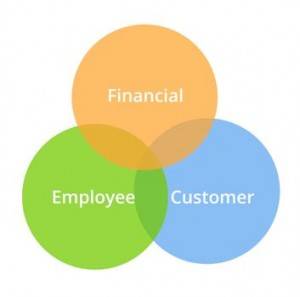April 1, 2016
Firms think they can hire Millennials as an alternative to digital skills training 0
 A large number of businesses in the UK aren’t investing enough in bridging their own digital skills gap and instead assuming that they can fix things and improve their productivity simply by employing younger ‘digital natives’ who just know all that sort of stuff anyway. That is the key finding of a new report from Barcays, which claims that companies are knowingly starving themselves of funding for key digital skills training despite understanding how that impacts their productivity. The report claims that firms on average invest just £109 per employee on digital skills training and are planning to increase that by just 19 percent over the next five years. They do this despite the fact that nearly half (47 percent) concede new tech skills would improve productivity. Instead 40 percent assume they can buy in the skills they need in the form of Millennials because they don’t trust older workers to pick up digital skills as quickly, if at all.
A large number of businesses in the UK aren’t investing enough in bridging their own digital skills gap and instead assuming that they can fix things and improve their productivity simply by employing younger ‘digital natives’ who just know all that sort of stuff anyway. That is the key finding of a new report from Barcays, which claims that companies are knowingly starving themselves of funding for key digital skills training despite understanding how that impacts their productivity. The report claims that firms on average invest just £109 per employee on digital skills training and are planning to increase that by just 19 percent over the next five years. They do this despite the fact that nearly half (47 percent) concede new tech skills would improve productivity. Instead 40 percent assume they can buy in the skills they need in the form of Millennials because they don’t trust older workers to pick up digital skills as quickly, if at all.
































March 7, 2016
Government talks a good game on technology, then fails to deliver 0
by Mark Eltringham • Comment, Flexible working, News, Technology
(more…)